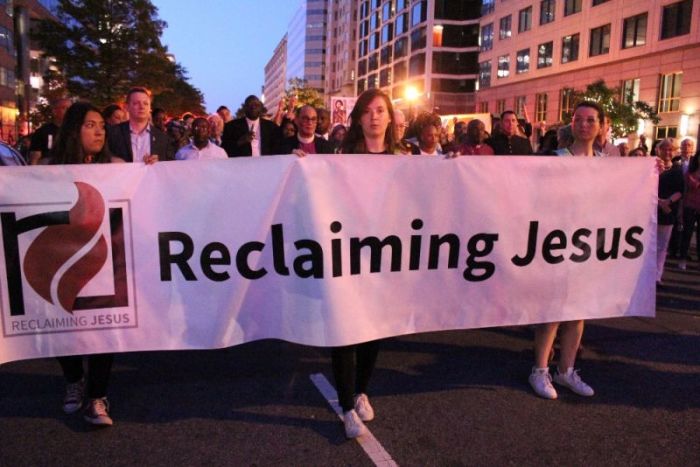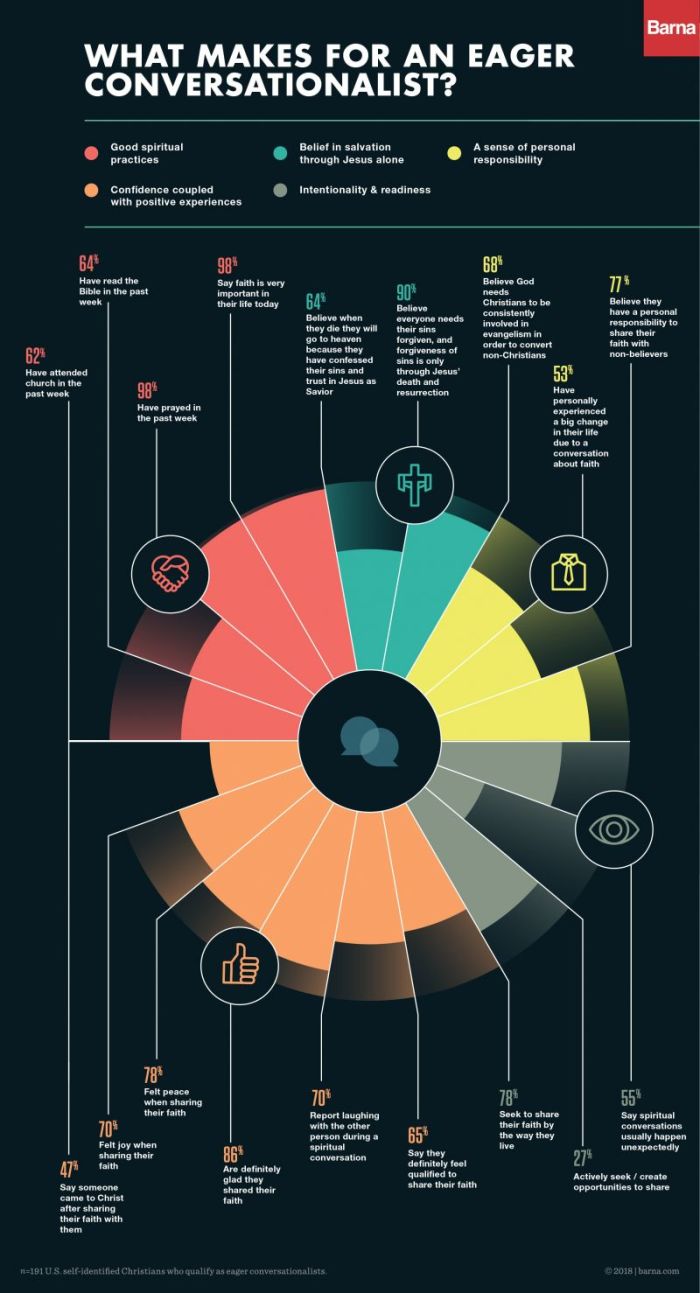It's Becoming Harder for Americans to Talk About God, Study Shows, but There's a Solution

It's becoming culturally harder for Americans to talk about God, a recent study has shown. But there's a solution.
Nearly three out of every four Christians are reluctant to talk about their faith with others but "good spiritual practices" could help them overcome their fears, according to a Barna research study commissioned by Lutheran Hour Ministries.
In an op-ed for The New York Times on Saturday, Jonathan Merritt, a contributing writer for The Atlantic and author of the book, Learning to Speak God From Scratch: Why Sacred Words Are Vanishing — And How We Can Revive Them, highlights the lack of spiritual or religious conversations among more than three-quarters of Americans.
Citing a survey he conducted with Barna's help, Merritt said just a mere 13 percent of practicing Christians who attend church regularly had a spiritual conversation once a week. He then pointed to a number of reasons why Americans are shying away from discussions about God or their faith.
"According to my survey, a range of internal conflicts is driving Americans from God-talk. Some said these types of conversations create tension or arguments (28 percent); others feel put off by how religion has been politicized (17 percent); others still report not wanting to appear religious (7 percent), sound weird (6 percent) or seem extremist (5 percent). Whatever the reason, for most of us in this majority-Christian nation, our conversations almost never address the spirituality we claim is important," he said.

Merritt warned that when Christians fail to openly discuss their faith they give room to people like prosperity preachers and politicians to drive the narrative on Christianity.
"Many people now avoid religious and spiritual language because they don't like the way it has been used, misused and abused by others. But when people stop speaking God because they don't like what these words have come to mean and the way they've been used, those who are causing the problem get to hog the microphone," he wrote.
"That toothy televangelist keeps using spiritual language to call for donations to buy a second jet. The politician keeps using spiritual language to push unjust legislation. The street preacher keeps using spiritual language to peddle the fear of a fiery hell. They can dominate the conversation because we've stopped speaking God. In our effort to avoid contributing to the problem, we can actually worsen it," he argued.
According to recent research from Barna, while most Christians have shied away from speaking about their faith, the minority who are eager to share with others have a set of habits that set them apart.
These habits include "good spiritual practices" like prayer, reading the Bible, and attending church.
They also have a "belief in salvation through Jesus alone" which includes a strong belief that everyone needs to have their sins forgiven; "a sense of personal responsibility" like sharing their faith with nonbelievers; "confidence coupled with positive experiences" like feeling peace and gladness after sharing their faith. The study further noted that "intentionality and readiness" which is when things like spiritual conversations usually happen unexpectedly are also among the habits of Christians who eagerly share their faith.




























